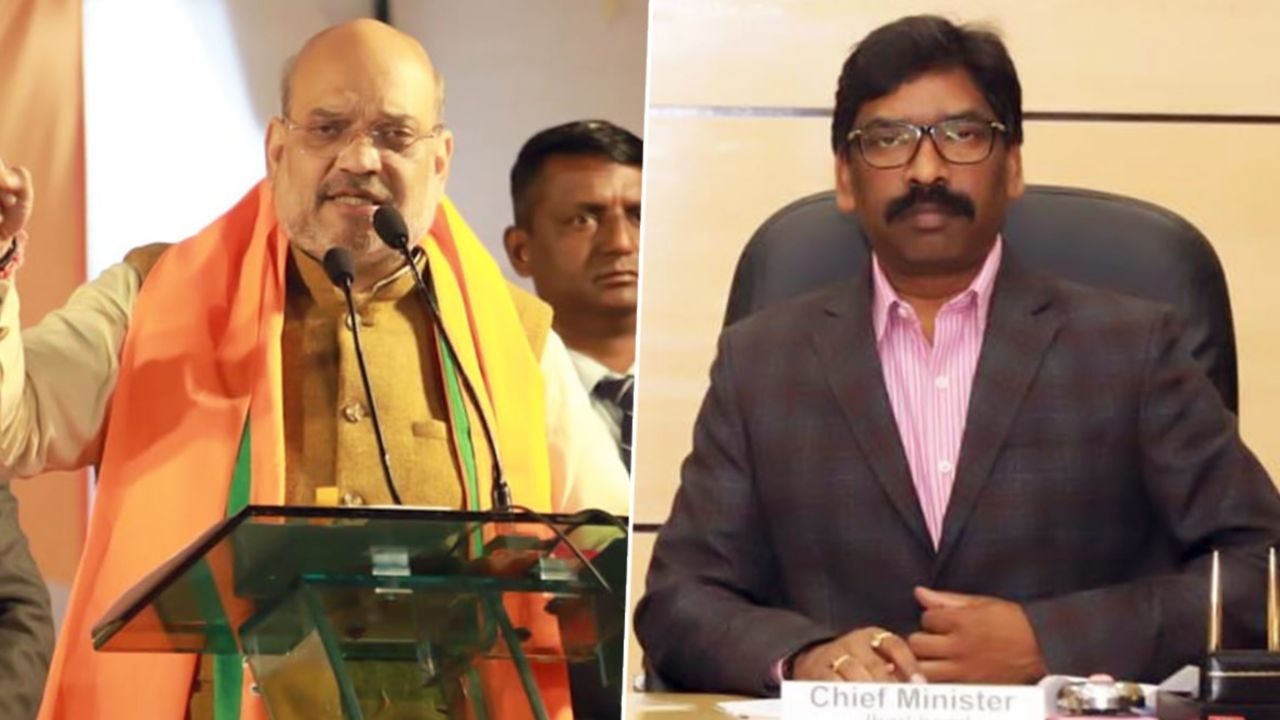Amit Shah Criticises Hemant Soren-led Government Amid Decline of Tribal Population in Jharkhand
23 Jul 2024 22:13:56

A Grim Reality for Jharkhand's Tribals
In a fiery speech delivered at Prabhat Tara Ground in Ranchi, Union Home Minister Amit Shah launched a scathing attack on the Hemant Soren-led Jharkhand Mukti Morcha (JMM) government.
Shah accused the current administration of failing Jharkhand's indigenous communities, claiming that the state's tribal population is declining at an alarming rate. According to Shah, this decline is the fastest in the country, a situation that he attributes to a series of policy failures and deliberate neglect by the JMM government.
Infiltrators and Demographic Shifts
One of the most alarming claims made by Shah is the rise of 'land jihad' and 'love jihad' in Jharkhand. He alleged that infiltrators, particularly from Bangladesh, are marrying tribal girls to acquire land fraudulently. This not only disrupts the land ownership patterns but also skews the demographic balance, leading to a reduction in the tribal population.
These claims were echoed by BJP spokesperson Tuhin Sinha, who highlighted the significant demographic shifts in the Santhal Pargana region, attributing these changes to the influx of Bangladeshi infiltrators.
Economic and Social Marginalisation
The economic plight of Jharkhand's tribals is another contributing factor to their decline. The state has long struggled with issues of malnutrition, anaemia, and poor healthcare infrastructure. The National Family Health Survey-5 revealed that 45% of children in Jharkhand are stunted, and 22% are wasted, indicating severe malnutrition.
Additionally, displacement due to mining and other industrial activities has forced many tribals to migrate, further exacerbating their marginalisation.
Religious Conversions
Religious conversions have also played a role in the demographic changes. Reports of illegal conversions to Christianity have been a concern, with claims that missionaries are luring tribals with promises of aid and resources during crises like the COVID-19 pandemic.
This shift in religious affiliations impacts the cultural fabric of the tribal communities, who traditionally follow Sarnaism, a nature-worshipping religion.
The Role of Hemant Soren
Hemant Soren, the Chief Minister of Jharkhand, has been accused of prioritizing appeasement politics over the welfare of the tribal communities. Critics argue that Soren's policies are aimed at broadening his voter base, often at the expense of the local youth and employment opportunities for tribals.
The BJP has pledged to release a white paper on Jharkhand's demography if they come to power, highlighting the need for transparent and effective governance to protect tribal interests.
The Historical Context
Jharkhand's tribal population has a rich history of resistance and resilience. The Santhal rebellion of 1855-1856, led by Sidhu and Kanhu, was a significant uprising against British colonial rule. Today, the tribals face new threats not from colonial rulers but from policies and demographic changes that undermine their cultural and economic stability.
Protecting Tribal Interests
To counter these challenges, it is imperative to implement policies that safeguard the rights and interests of the tribal population. This includes stringent measures to curb illegal land acquisitions and marriages that exploit tribal women. Additionally, improving healthcare, education, and employment opportunities is crucial to uplift the socio-economic status of the tribals.
Conclusion
The decline of Jharkhand's tribal population is a multifaceted issue that requires immediate and comprehensive action. The accusations against the Hemant Soren-led government highlight the urgent need for policies that prioritise tribal welfare over political gains.
As Jharkhand heads towards the assembly polls, the future of its indigenous communities hangs in the balance. The BJP's commitment to releasing a white paper and addressing these issues offers a glimmer of hope for the state's beleaguered tribals. However, it remains to be seen if these promises will translate into tangible benefits for the community.
In the end, the protection of Jharkhand's tribal population is not just a political issue but a moral imperative that demands attention and action from all stakeholders involved.
Article by
Shomen Chandra
Sub Editor, The Narrative